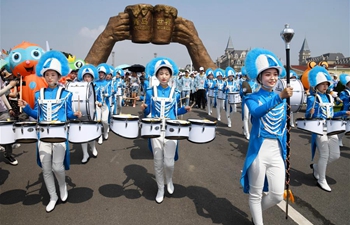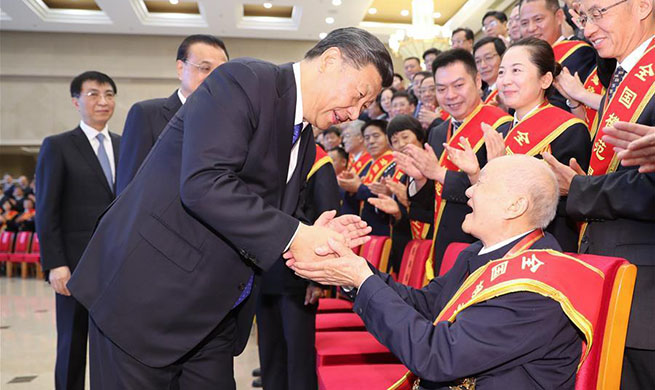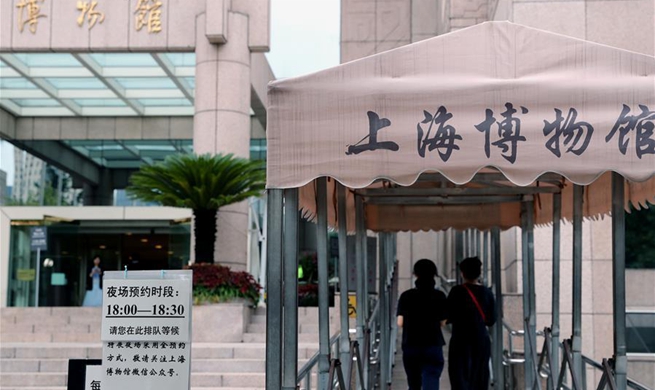by Matthew Rusling
WASHINGTON, July 26 (Xinhua) -- The administration of U.S. President Donald Trump is re-instating the federal death penalty for the first time in nearly two decades, in what experts call an effort to show his base he's tough on crime.
This week saw U.S. Attorney General William Barr order the Federal Bureau of Prisons to re-instate the death penalty for federal prisoners, with five inmates, who have been convicted of murder, slated for execution in December and January.
"The Trump Administration has toughened many law enforcement policies, so the move to re-instate the death penalty is in keeping with the general thrust of the president's policies," Brookings Institution Senior Fellow Darrell West told Xinhua.
"He wants strong enforcement power across the board," he said, adding that the policy shift would give federal officials another tool to toughen the justice system.
Indeed, the move comes in the lead-up to the 2020 presidential elections, and at a time when the president wants to shore up his base in a bid to retain control of the White House.
The death penalty remains legal in 29 U.S. states, and is usually carried out at the state level, not the federal level. While the number of executions is decreasing year by year, experts say the Trump administration wants to roll back this trend.
Only three people have been executed by the federal government, as most of the U.S. criminal justice system is administered by states.
Christopher Galdieri, an assistant professor at Saint Anselm College, told Xinhua the move is in line with Trump's "appearing tough on crime and demonstrating the power of the state."
"I think the most important thing, from the White House's perspective, is the symbolism of it," Galdieri said.
The five convicted murderers to be executed under the federal death penalty include Daniel Lewis Lee, who murdered a family of three; Lexmond Mitchell, who murdered a 63-year-old woman and her 9-year-old granddaughter; and Wesley Ira Purkey, who raped and murdered a 16-year-old teenager; Alfred Bourgeois, who molested and murdered his 2-year-old daughter and Dustin Lee Honken, who shot and killed five victims.
"The Attorney General is carrying out the law, authorized by Congress, against murderers who lost all their appeals," Heritage Foundation Legal Fellow Charles "Cully" Stimson told Xinhua.
While Trump's base favors policies that get tough on crime and is generally in favor of the death penalty, some experts believe capital punishment is disproportionately carried out against minorities.
That could hurt the president's efforts to appeal to minorities, in the lead-up to the 2020 elections.
"The move is likely to infuriate minorities in America because they believe the U.S. criminal justice system is biased against minorities and that capital punishment is much more like to fall on them than Caucasians," West said.
"They will argue this is just one more way in which President Trump is pursuing racially biased policies," West said.
Despite media spotlight on the U.S. death penalty, actual executions account for only a small percentage of all murder cases in the United States.
Stimson said most murders are not death-penalty eligible crimes. Only a handful of murders and other crimes are death-penalty eligible, and among those that are, only a handful of them are categorized as capital cases, he said.
Of those that are categorized capital cases, only a handful are tried as capital cases. And of those that are tried as capital cases, only a handful are found guilty of capital offenses, Stimson said.
Of those that are found guilty of capital offenses, only a handful are given the death penalty. And of those who are sentenced to death, only a handful are ever executed, Stimson said.
"It is a rarely used punishment," Stimson said.













